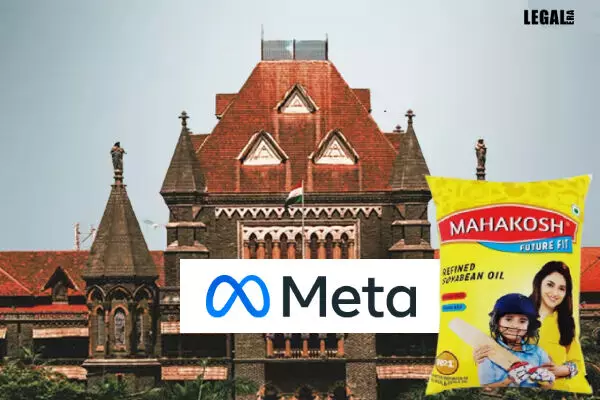- Home
- News
- Articles+
- Aerospace
- AI
- Agriculture
- Alternate Dispute Resolution
- Arbitration & Mediation
- Banking and Finance
- Bankruptcy
- Book Review
- Bribery & Corruption
- Commercial Litigation
- Competition Law
- Conference Reports
- Consumer Products
- Contract
- Corporate Governance
- Corporate Law
- Covid-19
- Cryptocurrency
- Cybersecurity
- Data Protection
- Defence
- Digital Economy
- E-commerce
- Employment Law
- Energy and Natural Resources
- Entertainment and Sports Law
- Environmental Law
- ESG
- FDI
- Food and Beverage
- Gaming
- Health Care
- IBC Diaries
- In Focus
- Inclusion & Diversity
- Insurance Law
- Intellectual Property
- International Law
- IP & Tech Era
- Know the Law
- Labour Laws
- Law & Policy and Regulation
- Litigation
- Litigation Funding
- Manufacturing
- Mergers & Acquisitions
- NFTs
- Privacy
- Private Equity
- Project Finance
- Real Estate
- Risk and Compliance
- Student Corner
- Take On Board
- Tax
- Technology Media and Telecom
- Tributes
- Viewpoint
- Zoom In
- Law Firms
- In-House
- Rankings
- E-Magazine
- Legal Era TV
- Events
- News
- Articles
- Aerospace
- AI
- Agriculture
- Alternate Dispute Resolution
- Arbitration & Mediation
- Banking and Finance
- Bankruptcy
- Book Review
- Bribery & Corruption
- Commercial Litigation
- Competition Law
- Conference Reports
- Consumer Products
- Contract
- Corporate Governance
- Corporate Law
- Covid-19
- Cryptocurrency
- Cybersecurity
- Data Protection
- Defence
- Digital Economy
- E-commerce
- Employment Law
- Energy and Natural Resources
- Entertainment and Sports Law
- Environmental Law
- ESG
- FDI
- Food and Beverage
- Gaming
- Health Care
- IBC Diaries
- In Focus
- Inclusion & Diversity
- Insurance Law
- Intellectual Property
- International Law
- IP & Tech Era
- Know the Law
- Labour Laws
- Law & Policy and Regulation
- Litigation
- Litigation Funding
- Manufacturing
- Mergers & Acquisitions
- NFTs
- Privacy
- Private Equity
- Project Finance
- Real Estate
- Risk and Compliance
- Student Corner
- Take On Board
- Tax
- Technology Media and Telecom
- Tributes
- Viewpoint
- Zoom In
- Law Firms
- In-House
- Rankings
- E-Magazine
- Legal Era TV
- Events
Bombay High Court Grants Ad-Interim Relief to Patanjali Restraining Meta in Trademark Infringement

Bombay High Court Grants Ad-Interim Relief to Patanjali Restraining Meta in Trademark Infringement
The Bombay High Court was pleased to grant ad-interim relief to Patanjali Foods Ltd., by temporarily restraining defendant no.1- Meta Platforms and defendant No. 3- Ashok Kumar (arrayed in the nature of ‘John-Deo’ action) from circulating a video regarding Patanjali’s ‘Mahakosh Refined Soyabean Oil’ on Meta's online platforms Facebook and WhatsApp during the pendency of the trademark infringement suit.
The single judge Justice Manish Pitale also ordered Meta and all others to take down defamatory videos which allegedly infringed the registered trademark of Patanjali Food.
The brief background of the case is that in 2013, Patanjali alleged that it came across a defamatory video circulating on Facebook that contained disparaging remarks against its edible oil ‘Mahakosh’.
It was the case of plaintiff- Patanjali that the video not only infringed the registered trademark of the Plaintiff, but it also carried the effect of spreading misleading and false information and impression in the minds of the general public with regard to the said product of the Plaintiff bearing the registered trademark.
Patanjali submitted that it has registration for word mark “MAHAKOSH” and a device mark since 1998. Further, it claimed that it has substantial goodwill over the registered trademarks and for the past 10 years its turnover was Rs. 55,35,068 crores.
It further argued that Meta Platforms did not take any action to delete the videos and did not reply to Patanjali’s cease and desist notices. Therefore, Patanjali had filed a trademark infringement suit against Meta, Google, and unknown persons before the Bombay High Court and sought for ad-interim reliefs during the pendency of the suit.
Defendant No. 2- Google opposed the prayer for temporary injunction against it, and Patanjali did not press it. Hence the ad-interim relief will operate only against Meta and persons who circulate the video on Facebook, WhatsApp etc.
The Court on perusal of the material on record was satisfied that prima facie the ingredients of Section 29(8) (a) and (c) of the Trade Marks Act, 1999 were made out.
The Judge observed, “The contents of the video in question, available on the platform of Defendant No. 1, prima facie appears to have infringed upon the registered trademark of the Plaintiff. A strong prima facie case is indeed made out for granting ad-interim reliefs in favor of the Plaintiff.”
The Court was further convinced that unless ad-interim reliefs as prayed were granted in favor of the plaintiff, it would likely to suffer grave and irreparable loss, thereby showing that the balance of convenience was in favor of the plaintiff.
Therefore, the Court proceeded to pass an order of temporary injunction restraining Meta platforms from infringing on Patanjali’s registered trademarks, including ‘MAHAKOSH.’
Advocates Prathamesh Kamat, Nakul Jain, Kayush and Apoorv Srivastava appeared for Patanjali.
Advocates Shailesh Poria, Hrishikesh Shukla and Rahul G appeared for Google LLC.


